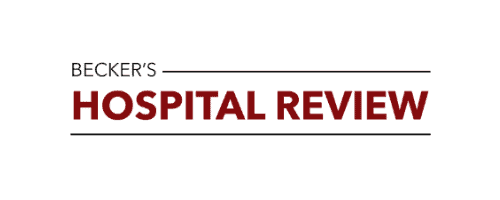


A Pharmacy Leader’s Commentary on Becker’s 10 Top Patient Safety Issues for 2021
Becker’s Hospital Review recently published 10 Top Patient Safety Issues for 2021, where Becker’s Clinical Leadership & Infection Control editorial team chose 10 patient safety issues for healthcare leaders to prioritize in 2021. In particular, we are most appreciative to see they’ve highlighted the drug shortage crisis that has plagued this country for years:
Drug and medical supply shortages. Hospitals and health systems experienced remarkable supply shortages in 2020, which pose safety risks for patients and healthcare workers. The U.S. relies heavily on international suppliers like China for personal protective equipment, and imports significantly declined during the pandemic.
Across the U.S., healthcare facilities have struggled to obtain enough PPE for staff members treating COVID-19 patients. Many clinicians have been forced to reuse masks or bring in their own PPE to protect themselves and patients. Amid this spring’s COVID-19 surge, some nurses in New York recorded themselves working in plastic garbage bags because systems ran out of gowns. Scammers selling counterfeit PPE also created numerous obstacles for health systems attempting to protect employees and prevent transmission of the virus within their facilities.
As of June, the U.S. was facing shortages of more than 200 generic drugs and supplies due to international shutdowns linked to the pandemic. In November, the American Medical Association declared drug shortages an urgent public health crisis and updated its approach to mitigating the shortages. Many drugs in shortage are commonly required for routine patient care and ventilator support, threatening basic care quality and patient safety.
Unfortunately, it comes as no surprise that drug shortages continue to be identified as a top patient safety issue heading into 2021. While we have been encouraged by some of the efforts of the past few years to facilitate more stability in our drug supply chain, it’s safe to say that much still remains to be done as we work to mitigate the harm caused by drug shortages. As reported by AP, government officials intend to “rapidly release most available vaccine doses to protect more people,” which will mean better tracking and managing will be more important than ever. The full extent of the impact fluctuations in drug product availability have on patient safety, public health outcomes, and cost of care remains poorly understood but as awareness continues to grow we expect to see more research and innovation focused on this critically important issue.
At OrbitalRX, we understand continuing to monitor and manage drug supplies as usual is not an option, so we are doing everything we can through advanced automation and data to support the heroes on the pharmacy and buyer teams that work tirelessly to prevent these events from causing patient harm. This includes actively participating in several research efforts focused on better defining the dynamic behaviors of drug shortages and understanding how they influence the quality of patient care. We owe it to healthcare professionals and our patients to be smarter and more sophisticated in how we address this persistent health threat.
About the Author:
Nate Peaty PharmD, MS
As a health-system pharmacy leader, Nate has been responsible for advancing complex, inpatient pharmacy operations and support systems through innovation. His commitment to furthering the role of automation in hospital operations and passion for designing better solutions for healthcare professionals led him to co-found OrbitalRX where, as its Chief Product Officer, he currently is responsible for corporate and product strategy, research, innovation partnerships, and customer relationships. In his role at OrbitalRX, Nate is designing a new generation of pharmacy automation solutions that challenge assumptions and power a more sustainable infrastructure for health-system and drug supply chains.


10 Top Patient Safety Issues for 2021

The Startups Disrupting the Pharmacy Sector | 2020 Wrap-Up

